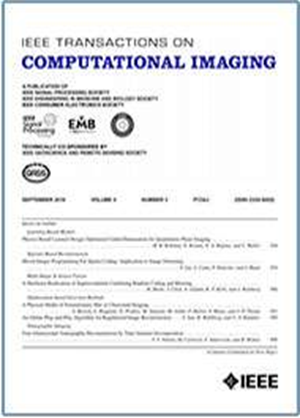Towards Robustness and Efficiency of Coherence-Guided Complex Convolutional Sparse Coding for Interferometric Phase Restoration
IF 4.2
2区 计算机科学
Q2 ENGINEERING, ELECTRICAL & ELECTRONIC
引用次数: 0
Abstract
Recently, complex convolutional sparse coding (ComCSC) has demonstrated its effectiveness in interferometric phase restoration, owing to its prominent performance in noise mitigation and detailed phase preservation. By incorporating the estimated coherence into ComCSC as prior knowledge for re-weighting individual complex residues, coherence-guided complex convolutional sparse coding (CoComCSC) further improves the quality of restored phases, especially over heterogeneous land-covers with rapidly varying coherence. However, due to the exploited实现相干引导的复杂卷积稀疏编码在干涉相位恢复中的鲁棒性和效率
最近,复杂卷积稀疏编码(ComCSC)在干扰测量相位恢复方面显示了其有效性,因为它在噪声缓解和详细相位保持方面表现突出。通过将估计的相干性作为先验知识纳入复杂卷积稀疏编码(ComCSC),对单个复杂残差进行再加权,相干性引导的复杂卷积稀疏编码(CoComCSC)进一步提高了恢复相位的质量,尤其是在相干性快速变化的异质地表。然而,由于利用了数据保真度项的 $L_{2}$ 准则,当相对较低的相干性值稀疏地分布在较高的相干性值上时,原始的 CoComCSC 对异常值并不稳健。我们提出了 CoComCSC-L1 和 CoComCSC-Huber,以改善 CoComCSC 基于 $L_{1}$ 和 Huber 准则的鲁棒性。此外,我们还提出了一种高效求解器,以降低求解基于 ComCSC 的优化问题中线性系统子问题的计算成本。通过使用模拟数据和真实数据将所提出的方法与其他最先进的方法进行比较,所提出的方法证明了其有效性。此外,与最先进的求解器相比,建议的求解器有可能将优化速度提高约 10%。
本文章由计算机程序翻译,如有差异,请以英文原文为准。
求助全文
约1分钟内获得全文
求助全文
来源期刊

IEEE Transactions on Computational Imaging
Mathematics-Computational Mathematics
CiteScore
8.20
自引率
7.40%
发文量
59
期刊介绍:
The IEEE Transactions on Computational Imaging will publish articles where computation plays an integral role in the image formation process. Papers will cover all areas of computational imaging ranging from fundamental theoretical methods to the latest innovative computational imaging system designs. Topics of interest will include advanced algorithms and mathematical techniques, model-based data inversion, methods for image and signal recovery from sparse and incomplete data, techniques for non-traditional sensing of image data, methods for dynamic information acquisition and extraction from imaging sensors, software and hardware for efficient computation in imaging systems, and highly novel imaging system design.
 求助内容:
求助内容: 应助结果提醒方式:
应助结果提醒方式:


